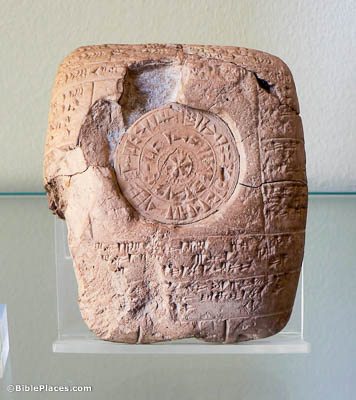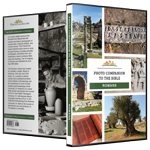What then shall we say that Abraham, our forefather, has found according to the flesh? (Romans 4:1)
One of the most notable acts of obedience Abraham rendered to God was his willingness to offer his only son Isaac on or near Mount Moriah, where the Temple would later be built by Solomon (Gen 22:1-18; 2 Chr 3:1). Paul poses this rhetorical question to introduce the cases of Abraham and later David as proof of his claim that justification is by faith alone. Justification cannot be merited on the basis of our obedience, which Paul has previously shown to be already forfeit by fallen humanity (Rom 3:9-18). This painting was photographed at Mar Saba, a monastery in the Judean wilderness that was founded in the 5th century AD.






